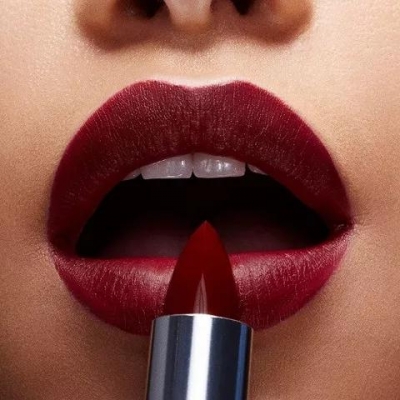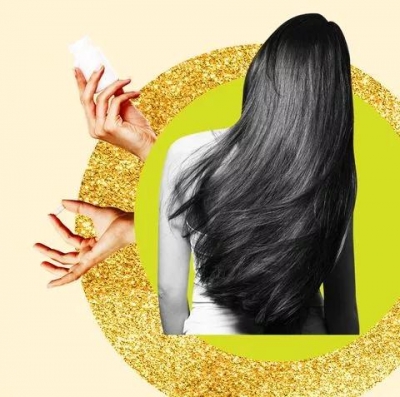profile/2794InShot_20200819_165153281.jpg
Sabiunique720

Timeless Beauty Trends You Can Live By
~4.2 mins read
Like fashion, beauty trends are ever-evolving. One time everyone is shaving and drawing on eyebrows, next fuller eyebrows are all the rave. But as a believer of using makeup and other beauty products to accentuate your best features, I believe the following trends stand the test of times regardless of which look is in season or which beauty products are selling out for the same reason.
Voluminous lashesRegardless of the trends that come and go no one has ever complained of eyelashes so big or many that they needed to clear them out. Beautiful long and voluminous eyelashes are a timeless beauty trend because they make your eyes look bigger, awake and they are the crown to a smokey eye look.
After all, we wouldn’t have faux eyelashes and voluminous lash mascara if this weren’t true.
Speaking of false eyelashes,
here’s a guide to picking the right lashes for different occasions.Voluminous hairHair that is sleek might be tempting, but the secret to its beauty lies in the volume. No one wants thin, limp looking hair. In fact, many of the hair products in the market highlight volume as a selling point because no one has yet to look ugly with voluminous well-kept hair. It might be that not many were brave to wear the Diana Ross signature fro however nowadays everyone appreciates voluminous hair for the crown that it is. Check out these
hair trends from the 90’s you should definitely try
Not too long ago, when the winged eyeliner was a staple look, beauty gurus and people who could draw the cat-eye were considered the Picassos of the makeup industry. Winged eyeliner was loved for how well it accentuated the eyes, how it flattered different eye shapes and for how well it paired with voluminous eyelashes. Even though this is not a staple look for everyone like it used to be, it remains a timeless beauty trend for every eye shape. Otherwise, how else can we describe a concept that still in use yet it has records dating back to
400BC in ancient Egypt?Here are
6 creative ways to wear winged eyelinerA glass skinBefore the glass skin was associated with Korean skincare everyone described it as a clear, glowing healthy-looking skin. However, the fact is the glass skin as made popular by Korean beauty dates back to ancient history. Long before the Korean wave came to be, people have associated a flawless, glowing skin with good genes, health or a high social status. Besides, if we were to dig deeper into the
history of Korean beauty the efforts to get a glass skin have origins in the Ancient Joseon era which is over 200 years from now.
Beauty:
Try this Korean skincare routine for great skinNo makeup lookWomen have used makeup to enhance their appearance and since time immemorial makeup trends have played a significant role in defining the beauty industry. But while different looks may come and go, like the matte makeup, thin eyebrows, instabrows or too much highlighter looks, the no-makeup look is still a timeless trend. Maybe because it hems on therealpurpose of makeup. Nonetheless, this natural look highlights one’s best features while providing a great foundation for you to get creative. Check out these
tips for a natural makeup look
Before blending was a technique, the smokey eye was still a thing. Only that it was done more boldly to embody the idea behind its origin.
The smokey eye is associated with Cleopatra, an intelligent and powerful woman. At the time heavy makeup was linked to the royals and hence the more daring or bold the makeup was the higher the status of the wearer was too. Today the smokey eye is not only worn as a way of expressing one’s creativity and skill, but also as a way to draw attention to the beautiful windows to our soul. Check out these
dramatic makeup looks that are easier to doFull eyebrowsInstabrows that looked like stick ons and thin eyebrows which were once a symbol of beauty are just trends we can’t help but regret in 2020. Well, regret is a big word, but these are some of the trends that went out as fast as they influenced everyone. On the other hand, full eyebrows are timeless because they are natural, unaltered, healthy and very attractive. Unlike thin eyebrows, full kept eyebrows define your facial features, make you look youthful and they let your natural beauty shine. Here are
5 ways to get fuller eyebrows
groomed eyebrows image from https://lipeimg.pw/beautiful-eyes-be-careful-when-you-look-into-the-windows-of-the.html
Red lipsThe beauty of red lips spans the ages for the timeless trend that it is. Red lips are a sign of beauty, power, femininity, boldness and oh, sophistication. Red lipstick is not only suitable for absolutely everyone, but it works on every occasion. Whether you are attending a formal meeting, a date, a party or just a stroll in the park, red is just the colour you need. Add lipgloss to your timeless beauty must-haves because who says no to luscious lips?
profile/2794InShot_20200819_165153281.jpg
Sabiunique720

Do Hair Growth Supplements Really Work? The Best Hair Vitamins, According To Dermatologists
~12.1 mins read
Spend even five minutes—nay, fiveseconds—on social media, and there’s a good chance you’ll be bombarded with pictures of influencers selling hair-growth supplements, ads for magical gummies promising to
grow your hair faster and longer , and probably even your aunt swearing by some vitamin that gave her thicker, fuller hair overnight (and for the low, low price of a pyramid scheme!). And although I’mCosmo’s resident skeptic—really, I could medal in party-pooping—even I have found myself drawn to the glowing allure of hair-growth pills.
Like, ifeveryoneis taking them, they've gotta do something, right?And, hey, what's the harm in downing a gummy or a cute pill every day anyways?! (Uh, potentially a lot, but more on that below). Since I’m clearly not the only person having this internal crisis, I went ahead and chatted with a bunch of experts and dermatologists to find out whether hair vitamins actually grow your hair—and, even more important, whether they’re safe to take at all.

Getty Images
Advertisement - Continue Reading Below
Advertisement - Continue Reading Below
Will hair supplements actually grow my hair faster?First, here’s what hair vitamins are allegedly supposed to do: revamp your hair from the inside out with a mix of “hair-friendly†ingredients, like biotin; folic acid; vitamins D, A, C, and E; and/or virtually anything else (!) they want to throw in there.
S upplements and vitamins are not FDA-regulated , meaning brands can kinda say and do whatever they want. After a few months of taking them, your hair is supposed to look longer, healthier, shinier, and stronger, and your scalp’s oil production can speed up or slow down, depending on the formulation. At least, supposedly.
The thing is, these pills aren’t backed by government-approved data, and the research youcanfind on them are often...shady. "A lot of the studies you find in support of hair supplements are actually funded by the brands themselves," says Dhaval G. Bhanusali, dermatologist and founder of
Hudson Dermatology and Laser Surgery in New York City. Bhanusali, who specializes in hair loss, says "the literature is sketchy at best, and most derms agree that supplements are not very impressive."
And because there isn’t really a uniform set of ingredients, strengths, or formulations across brands,
there’s never going to be an official yes or no answer as to whether hair supplements work (and, more problematically, which formulations can mess with your body). But if you ask the experts—or me, who tried taking them for two months and was only left with zits—the answer is pretty much a big ol’ NOPE across the board.
Do hair growth vitamins work at all?Okay, so even though vitamins themselves are absolutely necessary and beneficial for your hair, they won’t do much if your body is already stocked with them—which it probably already is.
“Most people get all the vitamins they need to manage their hair growth just from their diet alone ,†says trichologist Dominic Burg, chief scientist at
Evolis Professional .
BUT shouldn’t I take them just in case?!I hear you ask. Sadly, more isn’t merrier here. Even if you ingest triple the vitamins your body needs (don’t), you won’t actually reap triple, or even double, the hair growth rewards. “Your body keeps only the vitamins it needs and then gets rid of the rest,†says Burg. Kind of like pouring water into a glass that’s already 100 percent full. So
unless you’re actually missing some key nutrients, you’ll likely end up peeing out the excess pretty soon after you ingest them.
Advertisement - Continue Reading Below
Advertisement - Continue Reading Below

Getty Images
How do I know if vitamin deficiency is affecting my hair?“There are a lot of women running around who are deficient and don’t realize it, because of either dieting, poor nutrition, or intense stress,†says Burg. And when you’re super stressed or not eating enough, “
your body will shut down your hair growth first and redirect nutrients and energy to the organs that need it most,†he says, thus leaving you vitamin deficient.
And if you’ve ever experienced a severe bout of physical or emotional stress (hi, pandemic!), you might have noticed a sudden shedding of your hair a few months after (or, if not, congrats! You just figured out WTF was going on with your hair). “
It’s a delayed reaction to the stress or diet that usually occurs three months later ,†says Burg.
Of course, the only way to know for sure if your body is deficient is to have your levels tested by your doctor, so please don't start popping pills just because the entire world is a dumpster fire right now—instead, wait for aphysicianto tell you that. Duh.
The 4 Best-Selling Hair Gummies
SugarBearHair Hair Gummies
amazon.com$29.98
SHOP NOW
HUM Nutrition Hair Sweet Hair Gummies
sephora.com$25.00
SHOP NOW
Vitafusion Gorgeous Hair, Skin & Nails
amazon.com$18.20
SHOP NOWAdvertisement

Link socials
Matches
Loading...
